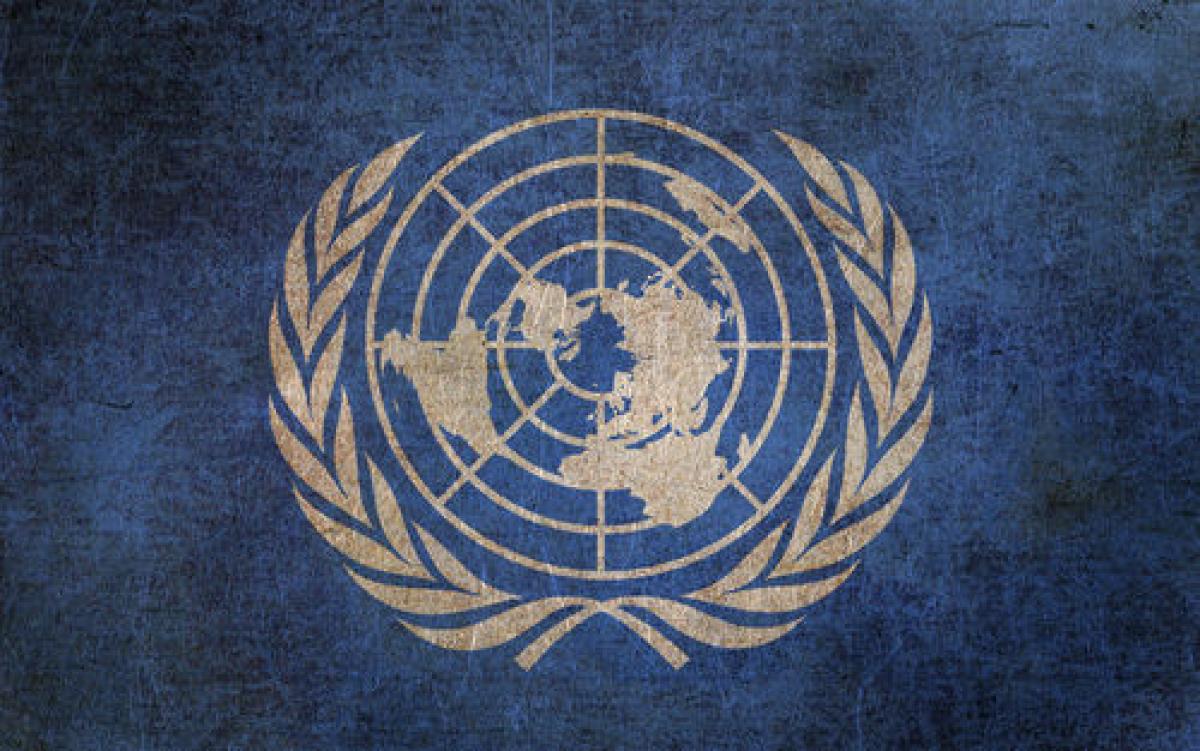Live
- Bengal: Senior resident doctor accused of rape, attempt to murder absconding
- Prateeksha Srivastava says she seldom meets fellow music composers Rusha, Blizza, in person
- KTR Accuses Government of Brutality Against Farmers, Calls for Immediate Action
- Manchu Manoj Attends Shooting Amid Family Controversy
- BWF World Tour Finals: Treesa-Gayatri defeat Malaysian pair to keep semis hopes alive
- MUDA case: Complainant Krishna asks Lokayukta to file new plaint on CM Siddaramaiah on ED’s report
- Airport capex in India to cross Rs 60,000 cr in fiscals 2025-2027 to handle growing traffic: Crisil
- Five-Year-Old Boy Dies After 55-Hour Rescue from Borewell in Rajasthan's Dausa
- Chaos in Parliament over Congress-George Soros link claims, BJP MP poses questions
- Bus Driver Arrested After Deadly Accident in Mumbai’s Kurla; 42 Injured
Just In

The United Nations on Friday defended its new global estimates on slavery after local media reported that India’s intelligence agency advised Prime Minister Narendra Modi to discredit the research, saying it may tarnish the country’s image and exports.
NEW DELHI: The United Nations on Friday defended its new global estimates on slavery after local media reported that India’s intelligence agency advised Prime Minister Narendra Modi to discredit the research, saying it may tarnish the country’s image and exports.
A report by International Labour Organization (ILO), the International Organization for Migration (IOM) and Australian rights group Walk Free Foundation published on Sept. 19 found more than 40 million people across the world were victims of modern day slavery last year.
The report said 62 percent of those in forced marriages or forced labor such as construction or domestic work were in the Asia-Pacific region. It did not provide country-specific data.
But in a memo from India’s Intelligence Bureau to Modi’s office, the agency questioned the report’s methodology, claiming the data “has enough potential to substantially harm India’s image and exports,” the Indian Express reported on Wednesday.
The bureau warned that “global documentation on slavery is increasingly targeting India as home to the highest number of slaves in the world,” and called for a strong campaign to “discredit” the information, the newspaper report added.
A home ministry official said that he could not confirm or deny inputs from security agencies.
ILO officials rejected claims India was being targeted and said they had full confidence in the report’s findings.
“The memo is based on a misunderstanding. There are no national figures in the data. We don’t single out any country,” Beate Andrees, ILO’s chief of the Fundamental Principles and Rights at Work, told the Thomson Reuters Foundation.
“We collaborated with Walk Free for a global figure as there was there was a strong demand among practitioners who found it unhelpful to have competing numbers on this.”
“QUESTIONABLE STATISTICS”
According to the Indian Express, the memo cited figures from a 2016 report by the Walk Free Foundation which estimated that 40 percent - over 18 million - of the world’s estimated 45.8 million slaves were in India.
The ILO’s senior statistician, Michaelle De Cock, said the security agency had confused data from last year’s Walk Free Foundation with this year’s new global estimates.
“There has been some confusion over the data. We do not endorse the data from the Walk Free report last year. Our global estimates are based on a completely new methodology which has to go through all the usual ILO procedures.”
There are no national figures on the number of people in slavery in India, but the labor ministry recently announced plans to identify, rescue and help over 18 million bonded laborers by 2030.
In India, many victims are villagers lured by traffickers with the promise of a good job and an advance payment, only to find themselves forced to toil in fields or brick kilns, enslaved in brothels or confined as maids to pay off debt.
Others work at the bottom of complex and often untransparent supply chains - producing everything from jewelry, cosmetics and garments - where they work long hours under strenuous condition for a meager wage and with little freedoms.
According to the newspaper report, the intelligence agency said the data from the ILO-Walk Free Foundation report was based on “questionable statistics” with interviews with over 17,000 people in India, but only 2,000 or less in other countries.
But Walk Free Foundation’s head of global research, Fiona David, said the global estimates were drawn from the best data available on modern slavery today.
“We welcome the Indian government’s continued focus and commitment on this issue,” said David. “We would be delighted to work with the Indian government on national estimation efforts.”
Campaigners say the leaked memo may be part of a wider policy by the Indian government to crack down on civil society groups which voice dissent or attempt to show India in a poor light.
In 2014, the security agency questioned the motives of foreign-funded charities such as Greenpeace claiming that their campaigns against mining, genetically modified crops and nuclear power was harming India’s development.

© 2024 Hyderabad Media House Limited/The Hans India. All rights reserved. Powered by hocalwire.com







